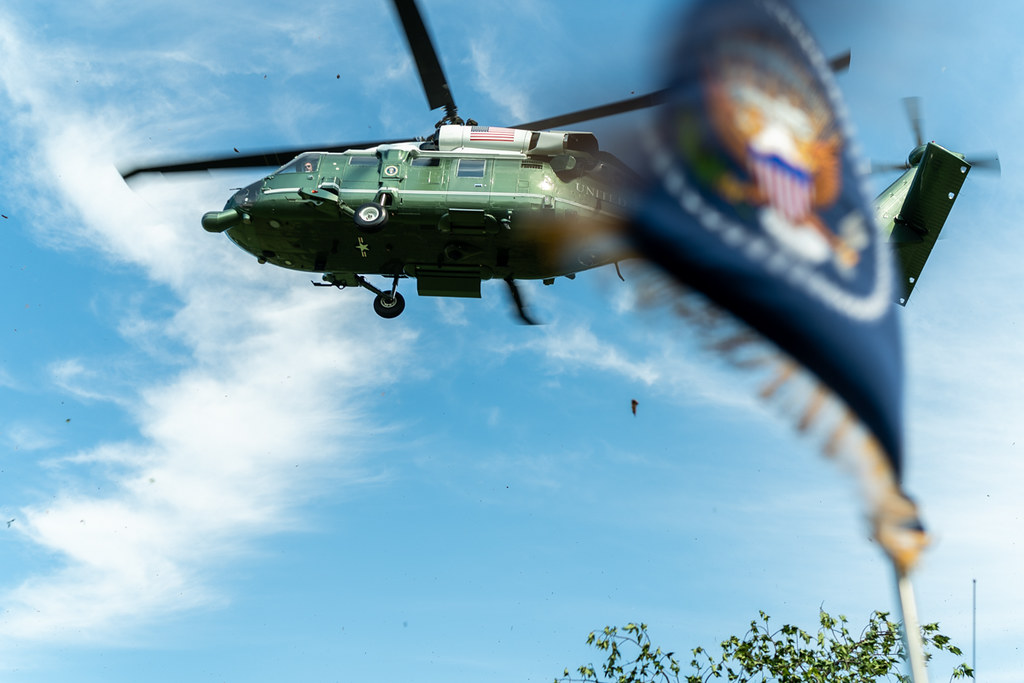Readings: FAA v. Pirker (Domestic Drone Flights)
Although the Federal Aviation Administration has been tasked by Congress to come up with regulations for the use of drones in domestic airspace, it is running late on that mandate. Even small, light model-airplane type drones operate under a narrow exemption for non-commercial hobbyists.
Published by The Lawfare Institute
in Cooperation With

Although the Federal Aviation Administration has been tasked by Congress to come up with regulations for the use of drones in domestic airspace, it is running late on that mandate. Even small, light model-airplane type drones operate under a narrow exemption for non-commercial hobbyists. (As readers of Lawfare know, even flying the toy Parrot quadracopter in DC airspace is prohibited on separate security grounds.) For the first time, however, the FAA has brought an enforcement action (and a $10,000 fine) against the ground operator of a domestic drone aircraft - in this case a 4.5 lb Ritewing Zephyr-powered glider. The background to the FAA's legal action is nicely explained in a Wired item by David Kravets (October 9, 2013), "Drone Pilot Fights to Profit in the Unmanned Skies."
The FAA issued an "Administrator's Order of Assessment" (Administrator v. Raphael Pirker, NTSB Docket CP-217, July 18, 2013). Pirker is fighting it, and his attorney (KramerLevin's Brendan M. Schulman) has filed Respondent's Motion to Dismiss. These are the only two case documents to date. The FAA asserts that Pirker's flights over UVA (commercial flights, as he was being paid to take photographs of the campus by a PR firm) violated the FAA's 2007 ban on commercial drone flights and further claiming that Pirker operated the drone "in a careless or reckless manner so as to endanger the life or property of another." Pirker's Motion to Dismiss, for its part, argues that the FAA lacks the authority to regulate drones, at least in ways set out in its 2007 ban on commercial drone flights. Kravets summarizes:
If Pirker prevails, the FAA’s 2007 ban on the commercial use of unmanned drones — a thriving overseas business — may be nullified. Pirker’s legal battle throws a spotlight on a commercial drone scene in the United States operating in a grey area. The FAA has issued dozens of cease-and-desist letters to operators of commercial model aircraft, forcing some companies to shut down. Others, however, are performing their aerial filming and crop and real estate surveying businesses underground — or sometimes right in the open. The agency is working on a set of regulations for the budding industry, but those rules won’t be unveiled until as early as 2015. Meanwhile, uncertainty reigns. Pirker’s lawyer maintains that the 2007 ban on commercial drones is invalid because the FAA failed to hold public hearings before issuing the rule. “There is no enforceable federal regulation concerning the operation of a model airplane,” says the attorney, Brendan Schulman of New York.FAA procedures for assessing penalties are typically aimed at pilots for various alleged violations (the complaint form tells you how to make a credit card payment), and doesn't have the FAA giving a legal brief at this stage - it's more like a citation. The FAA's complaint lists alleged flight violations by Pirker, while the Motion to Dismiss sets out (for the first time I'm aware of) a comprehensive, well-argued legal brief that the FAA's 2007 regulation is invalid. (This post will be periodically updated as new documents are added to the case.)
Kenneth Anderson is a professor at Washington College of Law, American University; a visiting fellow of the Hoover Institution; and a non-resident senior fellow of the Brookings Institution. He writes on international law, the laws of war, weapons and technology, and national security; his most recent book, with Benjamin Wittes, is "Speaking the Law: The Obama Administration's Addresses on National Security Law."





